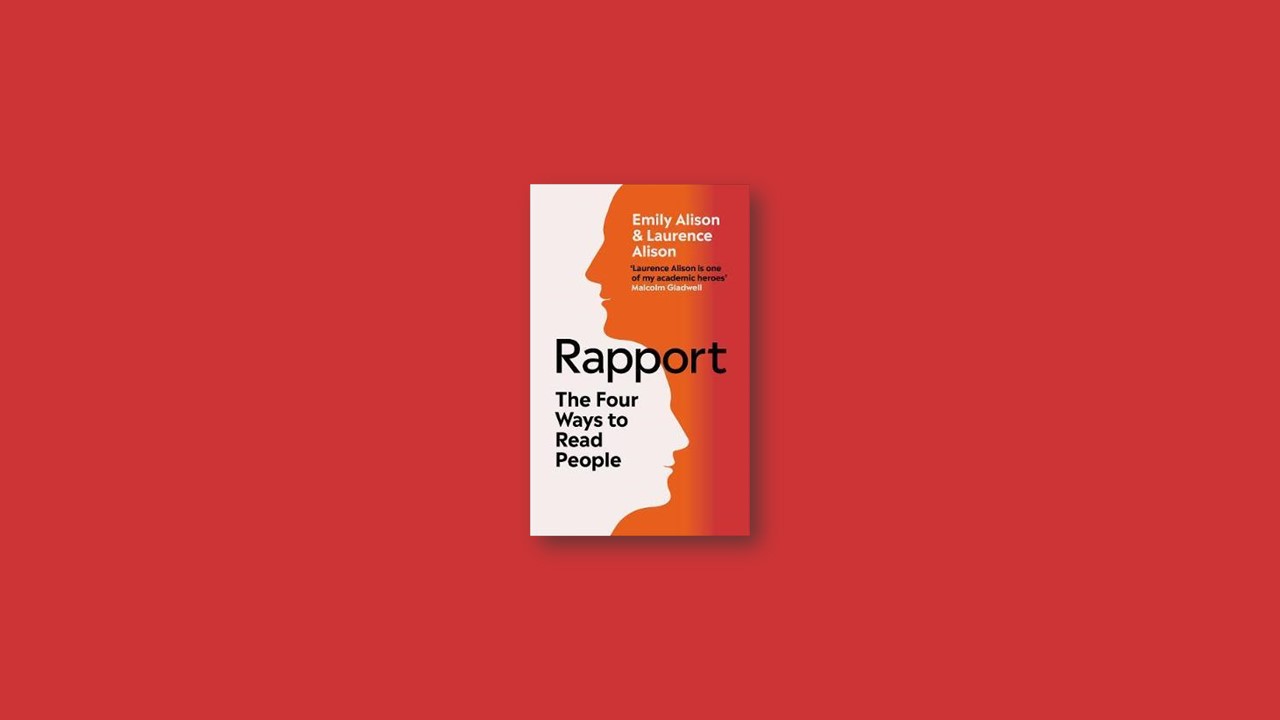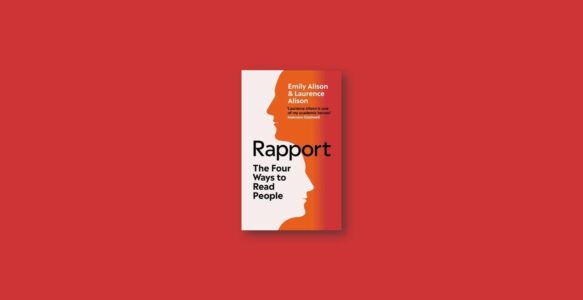Rapport can be learned. Whether an extrovert or introvert, you need other people. But rapport skills are about helping to make connections deeper and not necessarily just adding friends. It is the depth of relationship that matters, not the breadth. So don’t rush out and try to get more friends on Twitter. Instead focus on the people who you really want a deeper and more meaningful relationship with. And for people you regret falling out with, try to reconnect. You cannot and should not be alone.
Meet your neighbours, learn their children’s names, do the postal run for an elderly neighbour or offer to include their front patch of lawn when you mow. If these things are too much effort for hectic modern schedules, then at least try to connect indirectly. Sponsor or support a youth club, green space or other community initiative that you feel connects with your wider values.
Deceit Rarely Works
Be wary of trickery and deceit. Do not be seduced into using trickery or deception to get your way. It may seem like a legitimate strategy. However, as we will see honesty is one of the core values that underpins rapport and healthy communication. If you sacrifice this principle, you corrupt the integrity of the relationship and people’s ability to trust you. Often whatever you gain in the short term, will not be worth the price it costs you in the long run.
Do not ever be a bully. Do not be tempted to gain compliance by the use of threat or force. Taking a rapport-based approach means seeking cooperation by agreement. It can feel like the long way round to solving a problem – it can seem quicker and easier to simply shout or intimidate to get the job done – but no one respects a bully; they only fear them. Don’t sacrifice your moral compass in an effort to get your own way.
4 Pillars of Rapport
Often, communication skills are thought of as mastering the art of saying the right thing, at the right time and in the right way. However, the real key to communication lies in what you do before you even open your mouth. Careful listening, not smooth talking, is actually the key to building solid rapport with others. Rapport should be built on four core foundations:
- Honesty
- Empathy
- Autonomy
- Reflection
#1 HONESTY
I hold the maxim no less applicable to public than to private affairs, that honesty is always the best policy. – George Washington, farewell address
‘Be honest with people’ sounds like simple, straightforward advice. However, it can be very easy to overstep that honesty into delivering a message that is actually too blunt or laden with emotion to be received productively by the other person.
There is a Chinese proverb: Do not use a hatchet to remove a fly from your friend’s forehead. It basically means: only use the amount of force necessary to the task or you may make the situation worse. You mustn’t waffle around the truth, but it is also unwise to smack people in the face with honesty like a wet trout – especially the people you love.
The skill in rapport-building is to deliver the right degree of honesty with the right amount of sensitivity required to achieve the goal. There are three ways to bring honesty to your interactions in a way that maintains rapport:
- Avoid using deceit or trickery.
- Be clear, objective and direct.
- Keep calm – leave your emotions at the door
#2 EMPATHY
If you can learn a simple trick, Scout, you’ll get along a lot better with all kinds of folks. You never really understand a person until you consider things from his point of view, until you climb inside of his skin and walk around in it. – Atticus Finch in Harper Lee’s To Kill a Mockingbird
Empathy, like rapport, is an oft-used word but one that is frequently misunderstood. Many people think of it as showing compassion or warmth towards another person, thereby confusing it with sympathy. Empathy, however, is about trying to genuinely understand what a person is thinking and feeling. It does not require softness or warmth, but it does require that you show an analytical interest in uncovering the other person’s core beliefs and values. This is the key to understanding another person’s behaviour, to getting ‘inside their skin’.
#3 AUTONOMY
The strongest principle of growth lies in the human choice. – George Eliot
Autonomy is an incredibly powerful feature of how we interact with other people. Whether or not we feel someone is trying to control us has a huge influence on our behaviour. Freedom to choose appeals to an instinctive drive within all of us to be in control of our own destiny.
Hollywood frequently tells us that the way to get criminals to cooperate is via a mixture of threat (rough them up until they talk), inducement (offer them a plea bargain), appeal (plead with them to talk for the sake of their victims), demand (bang on the desk and point) and relentless pressure (keep going until they are exhausted and just give up and tell you everything). But Hollywood is not reality.
In research, none of these methods were effective at securing reliable information. These behaviours do influence people – they make them more vulnerable and potentially increase the risk of false information or even false confession. These tactics are an unsophisticated, lazy way to communicate with others.
Good police interviews should not be based on manipulation, deception and coercion, and neither should relationships with others close to us. We want our partner to stay faithful in a relationship out of love, not fear. We want our children to do as they are asked out of respect, not resentment. And we want people close to us to tell us things out of a sense of trust and intimacy, not trickery.
So how does one encourage cooperation through offering choice? Right at the heart of the humanistic person-centred approaches to therapeutic intervention is the notion that whether they speak or not is up to the client. The same principle is enshrined in UK and US law when it comes to suspects. It is their right to say nothing. When this right is presented to them with genuineness and respect, they are more likely to stay put in the room and engage with the interviewer.
#4 REFLECTION
You’re short on ears and long on mouth. – John Wayne
Reflection is repeating back in part or in paraphrase what someone has said to you. When you use reflection, all you are really doing is inviting the other person to expand and add more by ‘sending’ out the key words, feelings or values that you’ve just heard them say.
Reflection is the aikido of conversation management. You take whatever the person has given and use it to build the momentum of the conversation and move it forward. You may find it surprising just how often this method works. The skill is, of course, in selecting the correct word or words to reflect back. That is why the most critical element of reflection is to listen very carefully to what is being said. Then select that segment that is most in line with or linked to the topic you want to know more about.
Reflection sounds such a simple and basic thing, but do not be fooled. Of all the elements, it is the single most important skill you can take away from this book – it is the key to unlocking all the other skills.
Honest, Empathy, Autonomy, Reflection (HEAR) Lessons
- Honesty. Be as honest as possible, whenever possible. Try to be direct without being blunt and guard against the desire to avoid or ignore the issue.
- Empathy. Empathy is an effort to develop an objective understanding of where someone is coming from – their core values and beliefs. In order to give them the freedom to express this we need to just listen and be neither judgemental nor collusive.
- Autonomy. No one likes to be told what to do. Let others convince themselves that it is the right choice for them by talking it through with them rather than trying to persuade. Give choice wherever possible.
- Reflection. The most critical element of reflection is to listen carefully to what is being said and reflect back the most relevant point to build on and move the conversation forward. That way you will develop a more detailed understanding of how people really feel.
The Rapport Revolution
Is it possible to remember all these things at all times and in all interactions? Absolutely not. Should you be able to master them all having now read the book? Of course not! The first thing we hope you will take away is the idea that failing (regularly) is fine. It is human. Sometimes not having the energy to even try is also fine. Making an effort with rapport-building is just that – it requires effort.
We should seek, at the very least, to not make things worse. The sideways comment when you are tired, the carelessly fired-off tweet, email or Facebook comment – these are the small, negative communications that have just ruined someone else’s day. That behaviour is contagious. In the same way that a kind fellow driver letting you out at a junction makes you more inclined to let other drivers out, a careless petty act that you have been on the receiving end of can nudge you towards a similar careless act towards others. These small careless acts can create a culture of disregard for others.
Instead, we should strive to create the culture we want to live in, even if it isn’t the one we’re living in right now. Be patient, be reflective and seek understanding. Do not succumb to the impulse to argue. Do not turn away from challenging injustice or hatred, but do not incite it.
Rapport doesn’t just make your life better; it makes the world a better place to live. That certainly has to be worth the effort.


